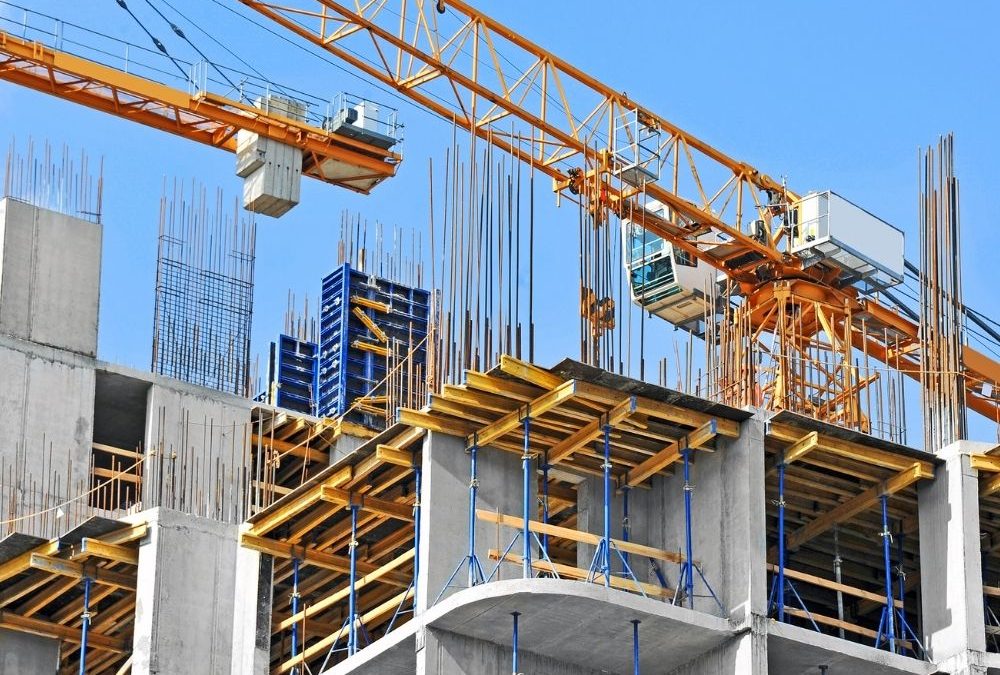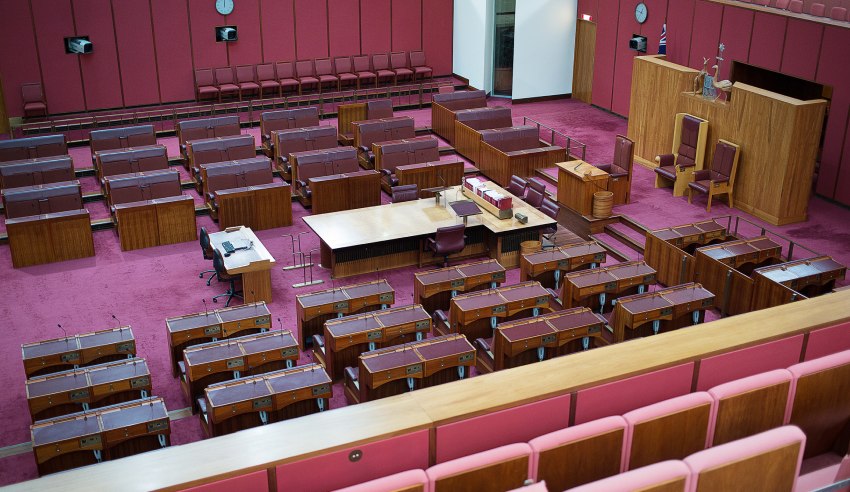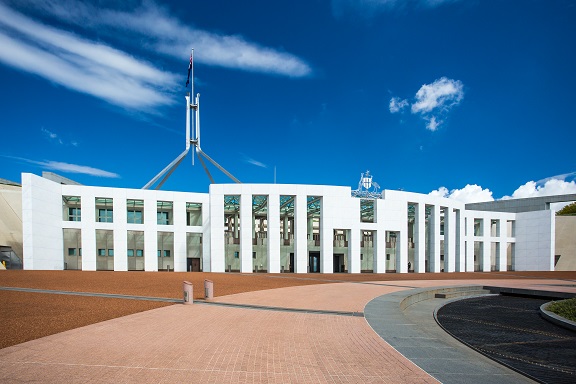
by Craig Sullivan | Aug 12, 2024 | Media Release
Australia’s largest and most representative business network is urging the government to go further on its legislation introduced today to place the CFMEU under an external administrator.
The Australian Chamber of Commerce and Industry (ACCI) supports steps to place CFMEU into administration, however it wants some of the legislation clarified and strengthened in a number of key areas.
While satisfied that the proposed legislation will place all state and territory branches of the Construction and General Division of the CFMEU under administration, ACCI Chief executive officer Andrew McKellar says there are concerns about transparency and guidance for the administrator.
“The current legislation does not require the administrator to report back to parliament, there is no explicit requirement for transparency or accountability.
“It is unclear how the government intends to measure the progress of the administration if there is no legislative requirement to provide regular reports.” Mr McKellar said.
He also expressed concern at the legislation which says the administrator must act in the interests of CFMEU members.
“The administrator must act in the interest of the construction industry as a whole and not just the union’s own members,” said Mr McKellar.
ACCI also repeated its call for the following measures to be introduced to eliminate corruption in the building and construction industries:
- The reinstatement of the building industry watchdog such as the disbanded Australian Building and Construction Commission (ABCC)
- A public inquiry with the powers of a royal commission into the construction division of the CFMEU.
- Deregistration of the CFMEU to remain on the table as an option.
- And action by state and territory governments on procurement procedures so they are not vulnerable to corruption.
“The Australian taxpayer should have the confidence that the building and construction industry plays by the rules and that taxpayers are getting value for money when it comes to publicly funded infrastructure works,” said Mr McKellar.

by Craig Sullivan | Aug 2, 2024 | Media Release
The initiation of proceedings today by the Fair Work Commission (FWC) to appoint an external administrator of the CFMEU should be just the start and tougher measures are needed, according to Australia’s largest and most representative business network.
The Australian Chamber of Commerce and Industry (ACCI) says appointing an external administrator on its own is “inadequate” as there are distinct limitations to the FWC’s powers.
ACCI chief executive officer Andrew McKellar says more measures are needed to satisfy public confidence that the building and construction industry is free of intimidation and corruption.
“We need a full robust, transparent judicial inquiry with all the powers of a royal commission,” Mr McKellar said.
“It’s the only way to get to the bottom of these serious allegations.”
Mr McKellar said the Fair Work Commission does not have the power it needs to gather the evidence related to allegations of criminal activity.
He said the allegations against the CFMEU further expose the decision to abolish the Australian Building and Construction Committee (ABCC) as flawed.
“There needs to be an independent properly resourced authority with the power to enforce the rule of law on building sites,” Mr McKellar said.
Mr McKellar also repeated calls for the government to keep as an option the deregistration of the construction division of the CFMEU.
“It is our strong view that deregistration must not be taken off the table, the CFMEU’s disgraceful conduct warrants a consideration about their continued existence.”
To avoid a repeat of alleged corruption on building and construction sites, Mr McKellar said the processes and policies of procurement should also be looked at.
“We remain concerned that the procurement policies and procedures remain vulnerable especially in the states and territories, where the system enables groups like the CFMEU to wield influence over major contracts.”

by Craig Sullivan | Aug 2, 2024 | Media Release
The imminent shutdown of the 3G network should be postponed, according to a Senate Committee report following evidence given by the Australian Chamber of Commerce and Industry.
Australia’s largest and most representative business network, through its Small Business Committee, gave testimony last week to the Rural and Regional Affairs and Transport References Committee looking into the 3G shutdown.
ACCI cited evidence given by industry and businesses that the 3G network will have a wider impact than first thought as many businesses still use equipment that relies on the network.
This includes EFTPOS terminals, industrial routers, tracking equipment on fleet vehicles and surveyors’ equipment which cannot be upgraded and costs around $15,000 per item to replace.
ACCI chief executive officer Andrew McKellar welcomed the findings of the Committee’s interim report that the shutdown be delayed.
“It appears that much of the equipment that businesses use that relies on 3G had previously been overlooked,” Mr McKellar said.
“If this shutdown is to be delayed it would be a last-minute reprieve for affected businesses, with Telstra scheduled to shut down its 3G signal on August 31 and Optus to follow the following day (September 1).
“A postponement will give businesses, particularly small businesses in regional areas who are likely to be most heavily affected, time to upgrade to new equipment and therefore delay costs.”
CEO of Surveyors Australia, Michelle Blicavs, also found the Senate’s report encouraging.
“It’s really pleasing to see that the government has listened to industry and recognised that this shutdown has much wider implications than the telcos initially seemed to realise,” she said.
“This senate inquiry has clearly led to a much broader understanding of the consequences and that’s a very good thing for the business community.”
The findings of the committee’s interim report have recommended:
- the Communications Minister to meet with the major telcos to seek a delay of the shutdown.
- The 4G network to provide coverage that is equivalent to or better than the 3G network.
- Government and industry to audit the number of devices that will be affected.
ACCI will now await the federal government’s response.

by Craig Sullivan | Jul 31, 2024 | Media Release
Businesses and industry remain very concerned at persistent inflation according to Australia’s largest and most representative business network.
The Australian Chamber of Commerce and Industry was responding to the June quarterly inflation figure of 1 per cent driving annual inflation up to 3.8 per cent from 3.6 per cent.
ACCI’s Chief of Policy and Advocacy David Alexander says today’s result is symbolic of the challenges facing business right now.
“The persistence of elevated inflation is a concern and reflects that business conditions in Australia continue to be a challenge,” Mr Alexander said.
Mr Alexander called on the Reserve Bank to exercise “fine judgement” when it next meets to decide on whether to increase rates or leave them on hold.
He’s also pointed to stalled rates of productivity and its role in driving up inflation.
“The Reserve Bank has warned that wage rises not linked to productivity gains will only contribute to inflation.”
Mr Alexander said there is also a role for governments in not adding to pressure on inflation by undisciplined spending.
“Today’s result is a reminder that governments at both federal and state levels need to refocus their attention to a more disciplined fiscal policy.
“It remains a concern that elevated inflation is putting pressure on higher interest rates which in turn puts further cost pressures on business,” Mr Alexander said.

by Craig Sullivan | Jul 30, 2024 | Media Release
Australian air and seaports need to modernise passenger processing and do away with antiquated systems such as the Incoming Passenger Card according to a new report by the peak body representing Australian businesses engaged with the visitor economy.
The Future Traveller Strategy report by Australian Chamber – Tourism says Australia risks losing its reputation as a desirable destination for overseas tourists, if we don’t improve the passenger experience as they travel through our air and seaports.
Australian Chamber – Tourism executive chair John Hart says the report recommends new and better ways of processing passengers to improve their experience.
“Whilst Australia ranks fifth in the world for travel and tourism competitiveness, we are 53rd for ground and port infrastructure and 112th for price competitiveness out 119 countries,” Mr Hart said.
“The government needs to embrace technology and streamline systems such as abolishing the outdated Incoming Passenger Card, when the passenger information can be provided by travel providers and travel agents.”
Among the other recommendations in the report are:
- Making multiple-entry visas available for key markets.
- Invest in ‘passenger on the move’ technology as an alternative to the SmartGate system.
- Ensure there are appropriate air capacity settings to increase competition and lower costs of airfares.
- Additional resources to allow travellers entering Australia via seaports more expedient processing.
The report also makes recommendations for Australian travellers heading overseas.
These include:
- Additional investment into the Australian Passport Office to enhance the digital pathway for passport applications and renewals.
- Enable additional providers in the travel and tourism supply chain to receive passport applications.
Mr Hart also cites the Tourism Refund Scheme where visitors are refunded local taxes as another area ripe for improvement.
“The Tourist Refund Scheme is a classic example. Other countries now offer refunds of local taxes paid at the point of purchase with a contactless confirmation at the border.
“In contrast, Australia’s system is plagued by long queues at airports and manually-completed refund paperwork,” Mr Hart said.
He also said tourism is too valuable a commodity to risk losing visitors because of outdated passengers screening and processing methods.
“Between inbound and outbound travel, there is a spend of over $100 billion.
“We should back ourselves to grow international tourism and generate return visitation to our great country.”
The full strategy can be accessed by clicking here.

by Craig Sullivan | Jul 28, 2024 | Media Release
The Australian Chamber of Commerce and Industry notes the significant changes to portfolios affecting the business community as announced by the Prime Minister this afternoon.
Of most relevance to Australia’s largest and most representative business network are the new Ministers in the portfolios of Home Affairs, Immigration and Cybersecurity, Employment and Workplace Relations and Training and Skills.
Accordingly, we welcome the appointments of Tony Burke, Senator Murray Watt and Andrew Giles in their respective portfolios.
ACCI looks forward to working constructively with all the newly appointed ministers in their relevant portfolios.




